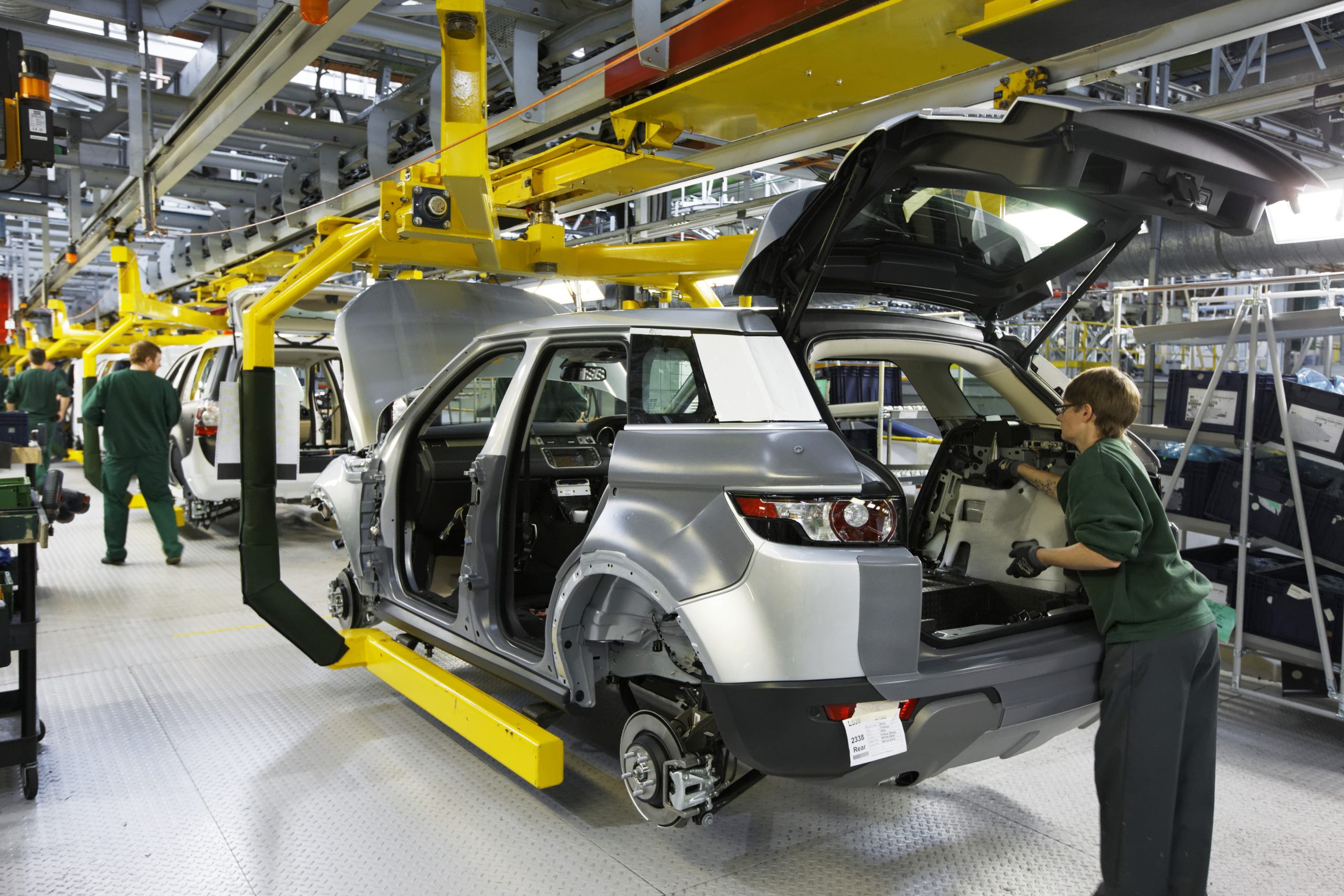Car maker Jaguar Land Rover is pushing ahead with ambitions to meet over a quarter of its electricity needs from self-developed renewables assets, sourcing up to 120MW from expanded on-site generation.
New solar arrays on or near each of the company’s UK sites lead its plans. Facilities earmarked for more solar PV include its HQ at Gaydon, near Coventry, for the volume Halewood plant near Liverpool, pictured, and at its specialist Electric Propulsion Manufacturing Centre in Wolverhampton.
The EPR’s roof is, according to a JLR statement, destined to have existing PV arrays expanded to nearly 19MW, meeting over one-third of the site’s power needs.
At the company’s Gaydon centre, planning approval has already been won for 18.2MW of new ground-mounted solar, adding to existing roof top arrays. The expansion will meet 40 per cent of the HQ’s power needs.
Solar car ports as well as conventional ground and roof arrays will feature in plans to grow the company’s solar PV capacity by 16 per cent overall. The first of three identified off-grid installations is scheduled to begin generation by late 2026.
All sites covered by the plans will retain grid connections, ensuring continuity of supply.
Tata-owned JLR’s drive towards more self generation is part of its global strategy to cover 36.4 per cent of its global consumption be the end of this decade. The automaker is working to the same schedule to cut carbon emissions across its operations by 46 per cent.
Under its ‘Reimagine’ programme, the UK operation has already rolled out energy efficiency projects, reducing emissions by 26% in 2023 compared to 2020. A total of 53 energy optimisation projects have been implemented in the last year, with savings in CO2e of 10.9ktonnes, equivalent to 5.5 million fire extinguishers.
“JLR is committed to managing its net zero energy transition against the challenging backdrop of volatile energy prices,” said Francois Dossa, JLR strategy and sustainability executive director, declared.
“We are working hard as a business to improve our energy efficiency across our entire global operations.
“These new projects will diversify our energy portfolio, to reduce our reliance on grid electricity and help us to reduce our energy bills”, Dossa said. “The steps we are taking further support our ambitious goal of achieving net zero emissions by 2039, and to hit our mid-term science-based targets along the way.”
Earlier this week, JLT’s parent Tata Group confirmed it will build a multi-billion-pound electric vehicle battery gigafactory at its Gravity Smart Campus near Bridgwater in Somerset. JLR and Tata Motors are scheduled to be the factory’s first customers, but the new plant will also sell to third-party vehicle makers.




